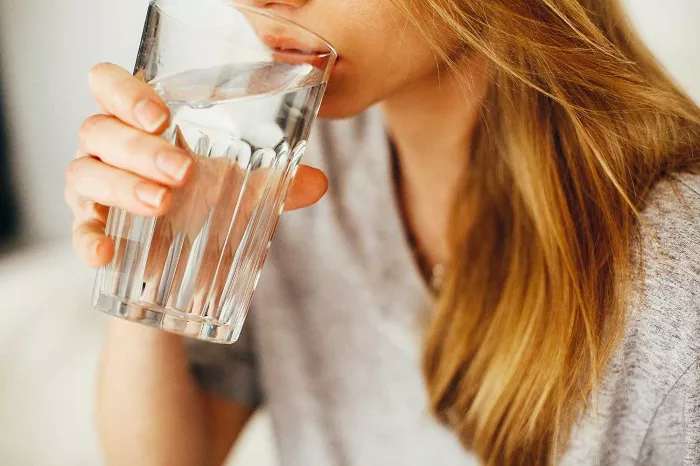Anxiety is a common mental health issue that affects millions of people worldwide. While therapy and medication are well-known treatments, many people look for natural ways to reduce anxiety. One simple yet often overlooked method is drinking enough water.
You might wonder—can something as basic as water really help with anxiety? The answer is yes. Research shows that dehydration can worsen stress and anxiety, while proper hydration supports brain function and emotional balance. In this article, we’ll explore how water affects anxiety, the science behind it, and practical tips to use hydration for better mental health.
How Dehydration Affects the Brain
The brain is about 75% water, and even mild dehydration can impact its function. When you don’t drink enough water, your brain has to work harder to perform basic tasks, which can lead to:
Increased stress hormones: Dehydration raises cortisol, the body’s main stress hormone. High cortisol levels make anxiety worse.
Poor focus and irritability: Lack of water reduces blood flow to the brain, making it harder to concentrate and stay calm.
Fatigue and mood swings: Dehydration can make you feel tired and emotionally unstable, both of which contribute to anxiety.
Studies have found that people who drink less water are more likely to experience anxiety and depression. This suggests a strong link between hydration and mental health.
The Science Behind Water and Anxiety
Water Helps Regulate Neurotransmitters
Neurotransmitters are chemicals in the brain that control mood. Serotonin and dopamine, for example, help you feel happy and relaxed. When you’re dehydrated, your brain produces fewer of these “feel-good” chemicals, making anxiety worse.
Water Reduces Physical Anxiety Symptoms
Anxiety isn’t just mental—it also causes physical symptoms like a fast heartbeat, dizziness, and muscle tension. Dehydration makes these symptoms worse because:
- Low water levels increase heart rate, mimicking panic attacks.
- Lack of fluids can cause dizziness and lightheadedness, which may trigger anxiety.
- Muscle cramps from dehydration can make the body feel tense and stressed.
Drinking enough water helps keep these symptoms under control.
Water Supports the Nervous System
The nervous system needs water to function properly. Dehydration can overstimulate the sympathetic nervous system (the “fight or flight” response), leading to heightened anxiety. Staying hydrated helps the parasympathetic nervous system (the “rest and digest” mode) stay active, promoting relaxation.
How Much Water Should You Drink to Reduce Anxiety
There’s no one-size-fits-all answer, but general guidelines suggest:
Men: About 3.7 liters (125 oz) per day from all beverages and foods.
Women: About 2.7 liters (91 oz) per day from all beverages and foods.
However, if you’re active, live in a hot climate, or drink caffeine (which dehydrates), you may need more.
Signs You’re Not Drinking Enough Water
- Dark yellow urine
- Dry mouth and lips
- Headaches
- Fatigue
- Difficulty concentrating
If you notice these signs, try drinking more water and see if your anxiety improves.
Tips to Use Water for Anxiety Relief
Start Your Day with Water
After hours of sleep, your body is dehydrated. Drinking a glass of water first thing in the morning helps kickstart your brain and reduces morning anxiety.
Carry a Water Bottle
Keep water with you throughout the day. Sipping regularly prevents dehydration-related stress.
Add Electrolytes for Better Hydration
Electrolytes (like sodium, potassium, and magnesium) help your body absorb water better. You can get them from:
- Coconut water
- Electrolyte tablets
- Fruits like bananas and oranges
Replace Anxiety-Inducing Drinks with Water
Caffeine and alcohol can worsen anxiety. Try swapping coffee or energy drinks with herbal tea or plain water.
Use Cold Water for Instant Calming
Splashing cold water on your face or holding an ice cube can trigger the “dive reflex,” which slows your heart rate and reduces panic.
Other Hydration-Boosting Habits for Anxiety
Eat Water-Rich Foods
Fruits and vegetables like cucumbers, watermelon, and strawberries help with hydration.
Set Hydration Reminders
Use phone alarms or apps to remind yourself to drink water regularly.
Practice Mindful Drinking
Instead of gulping water quickly, take slow sips and focus on how it feels. This can be a calming mindfulness exercise.
Conclusion
Water may not be a cure for anxiety, but it plays a crucial role in mental health. Dehydration increases stress, worsens anxiety symptoms, and disrupts brain function. By drinking enough water and staying hydrated, you can support your nervous system, improve mood, and reduce anxiety naturally.
If you struggle with anxiety, try increasing your water intake for a few weeks and see if you notice a difference. Combined with other healthy habits like exercise, good sleep, and therapy, proper hydration can be a simple yet powerful tool for managing anxiety.
Related topics:
- How Ice Baths Can Help Alleviate Anxiety: A Guide To Cold Water Therapy
- How To Deal With Nausea From Anxiety?
- What To Drink For Stress And Anxiety?


